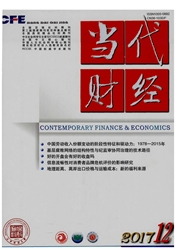

 中文摘要:
中文摘要:
通过建立理论模型,利用我国省际动态面板数据,分析了房价和地价中的公共支出资本化问题。结果表明:我国公共支出对房价和地价都有正向推动效应,即公共支出增加,会通过房产和土地价值提升而形成公共支出资本化现象,加剧了地区间收入分配差距;但是,公共支出资本化的程度在房价中弱于在地价中,地方政府获得了更多的资本化收益。所以,政府在房价调控中应注意缩小公共支出资本化引发的收入分配效应,房产税改革应注意夯实土地使用权的物权属性,并优化房产税的归属和用途,以促进基本公共服务均等化。
 英文摘要:
英文摘要:
Through establishing a theoretical model and making use of China’s inter-provincial dynamic panel data,this paper makes an analysis of the issue of capitalization of public expenditures in housing price and land price.The results indicate that China’s public expenditures can have positive promoting effects on housing price and land price,i.e.the increase of public expenditures will lead to capitalization of public expenditures through the appreciation of the value of real estate and land,which would widen the income distribution gap between the regions.However,the degree of capitalization of public expenditures is weaker in housing price than in land price,so the local governments receive more capitalized proceeds.Therefore,when regulating and controlling housing prices,the government should pay attention to reducing the income distribution effects triggered by the capitalization of public expenditures,strengthening the nature of real rights of land use rights during the reform of housing property right,and optimizing the application of housing property tax,so as to promote the equalization of basic public services.
 同期刊论文项目
同期刊论文项目
 同项目期刊论文
同项目期刊论文
 期刊信息
期刊信息
